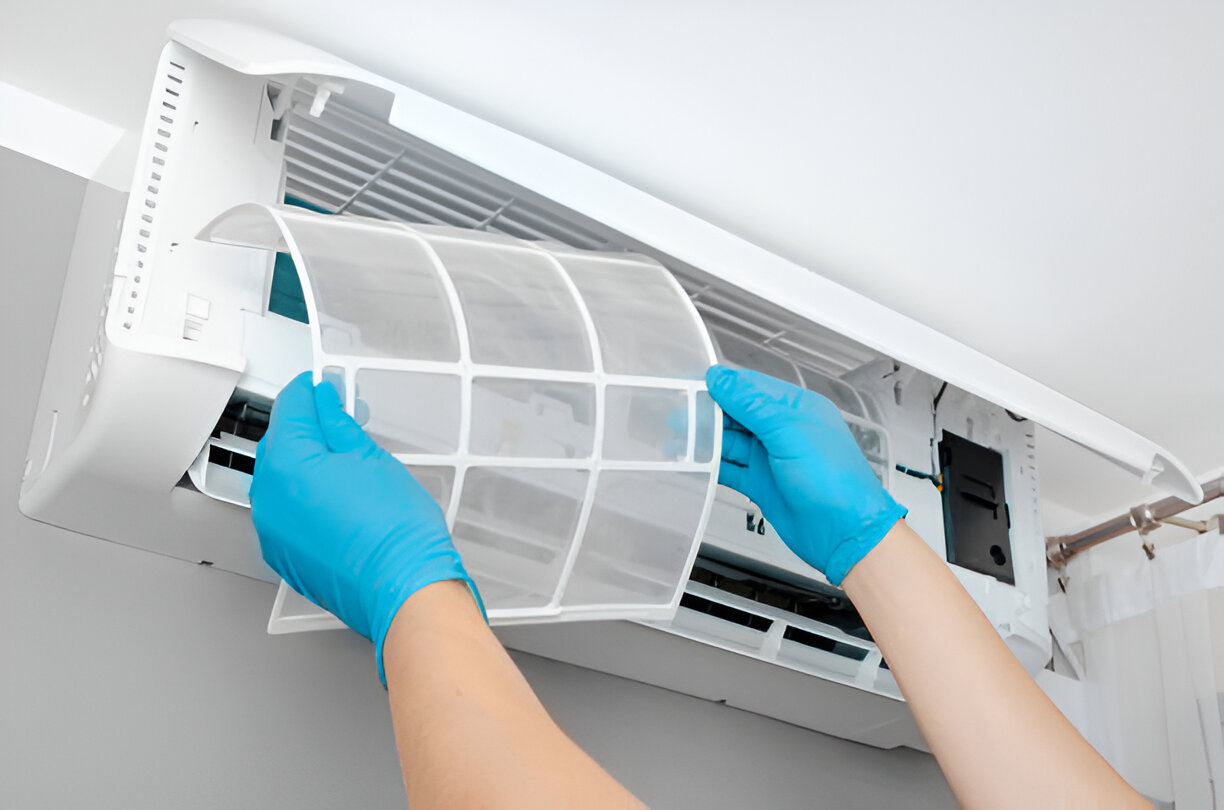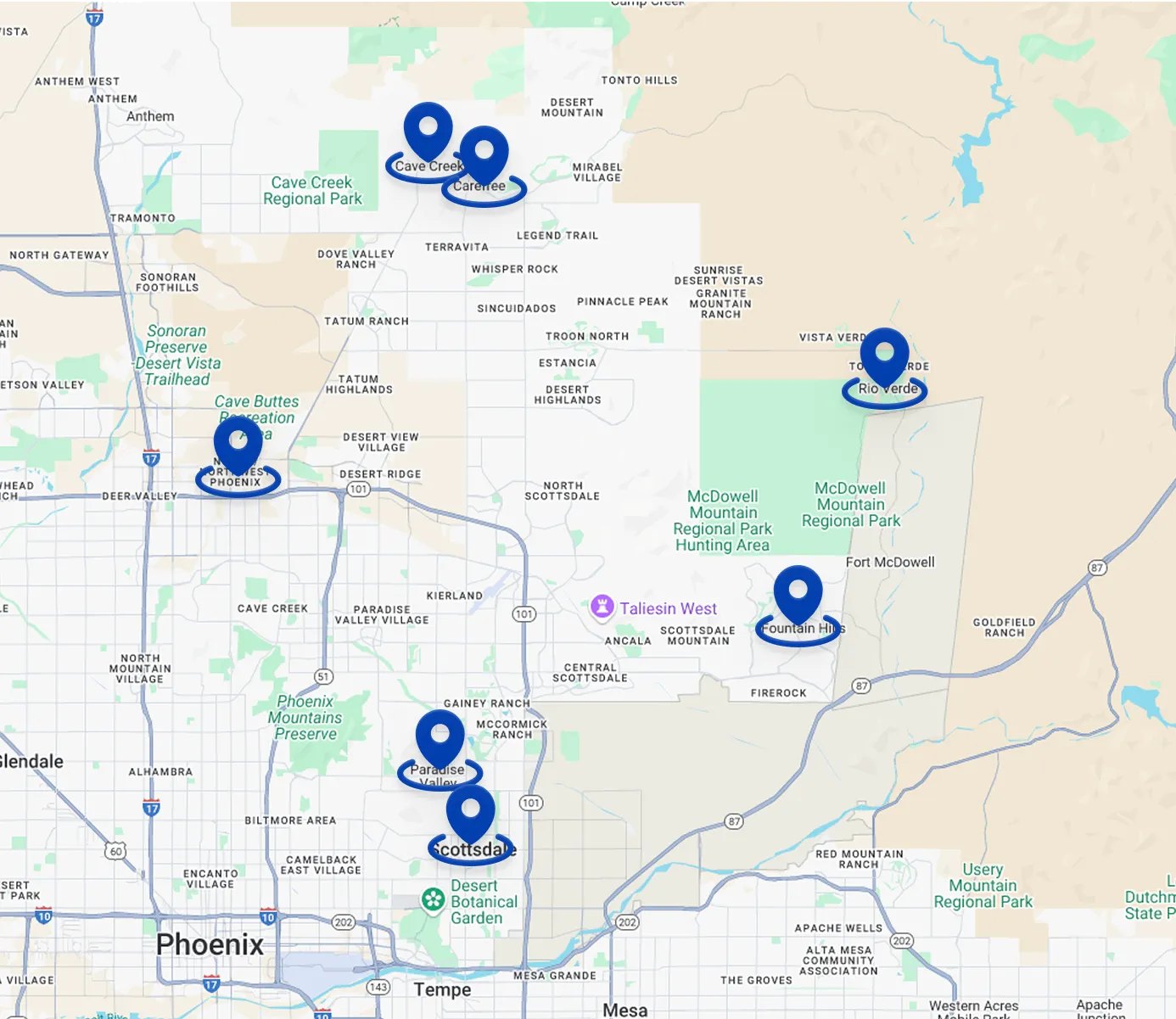Mini-split Installation in Cave Creek, AZ
Mini-split (ductless) installation is an efficient, flexible way to add targeted cooling and heating to Cave Creek homes without tearing out walls or extending ducts. For homeowners dealing with hot summers, diurnal temperature swings, dust from monsoon season, or rooms that never reach comfortable temperatures, a correctly sized and professionally installed mini-split system delivers consistent comfort, lower operating costs, and precise zoning control.

Common reasons Cave Creek homeowners choose mini-splits
- Converting garages, casitas, or additions that lack ductwork
- Solving hot or cold spots in individual rooms, upstairs suites, or home offices
- Replacing inefficient window units or portable ACs with quieter, more efficient equipment
- Seeking energy-efficient alternatives for moderate heating loads and high summer cooling demand
- Preserving historic or stucco exteriors by avoiding invasive duct runs
On-site assessment and load calculations
A reliable installation begins with an on-site assessment. A technician will:
- Inspect the space layout, orientation, insulation, window exposure, and roof overhangs—factors that matter in Cave Creek where afternoon sun and desert heat significantly raise cooling loads.
- Perform a Manual J load calculation or equivalent to determine the correct system capacity for each zone. Oversizing is a common pitfall; it leads to short cycling and higher humidity.
- Evaluate electrical service and breaker availability, and note any needed upgrades for outdoor unit power.
- Advise on multi-zone vs single-zone setups based on usage patterns and budget.
Choosing the right system and energy-efficient models
When selecting a mini-split, key considerations include capacity, efficiency, and features:
- Capacity: Match unit capacities to load calculations for each zone rather than relying on generic room size rules.
- Efficiency: Look for inverter-driven compressors and high SEER/HSPF ratings—these save energy in Cave Creek’s long cooling season and provide better temperature control.
- Features: Variable-speed compressors, quiet indoor units, programmable schedules, and smart thermostat integration improve comfort and convenience.
- Manufacturer reputation and parts availability matter for long-term reliability; ask about certified installers and authorized parts support.
Indoor and outdoor unit placement and aesthetics
Proper placement optimizes comfort, airflow, and visual integration:
- Indoor units are typically mounted high on a wall or low on the floor for certain room types. Placement should promote even airflow without blowing directly on seating or beds.
- Outdoor condenser location should allow adequate airflow, be shaded if possible, and be placed above potential dust accumulation. In Cave Creek, positioning the outdoor unit away from prevailing dust paths and ensuring clearance from desert vegetation reduces maintenance.
- Line sets and control wiring are run through a small hole with a neat exterior cover or chase; skilled installations minimize visible lines and preserve stucco or brick finishes.
- For multi-head systems, planning layout to reduce long line lengths improves efficiency and simplifies maintenance.
Professional installation steps and typical timeline
A professional installation follows a clear sequence:
- Pre-install inspection and final equipment selection
- Site preparation and permitting (if required)
- Mounting indoor units and placing the outdoor unit with vibration isolation pads
- Running refrigerant lines, electrical connections, condensate drainage, and control wiring
- Evacuation, refrigerant charge, and system commissioning
- Post-installation testing, balancing, and homeowner walkthrough
Timeline: most single-zone installs can be completed in a day; multi-zone or complex installations may take two to three days depending on site access and any electrical work needed.
Permitting and code compliance
Permits are commonly required for new HVAC equipment and electrical work. A qualified installer will:
- Pull required permits and ensure work complies with local building codes and Maricopa County regulations that apply to Cave Creek.
- Use licensed technicians for refrigerant handling and electrical connections.
- Provide documentation needed for inspections and warranty registration.
Warranty and manufacturer information
Most mini-split systems are backed by manufacturer warranties covering compressors and parts. Important points to understand:
- Warranty coverage often requires installation by a certified or authorized contractor and timely product registration.
- Labor warranties may be provided by the installing contractor in addition to manufacturer coverage.
- Ask for clear warranty documentation at handover so you know coverage terms and how to file claims.
Financing options and pricing considerations
While exact costs vary, several factors influence the investment:
- Number of zones and total system capacity
- Complexity of placement and line set runs
- Electrical upgrades or permit-related work
- Chosen model efficiencies and additional features
Financing options through third-party lenders are commonly available to spread payments over time if preferred. A professional estimate after the on-site assessment will outline the scope of work and the factors that drive cost so you can compare options confidently.
Post-installation testing and homeowner walkthrough
After installation, expect a thorough commissioning:
- Technicians will test refrigerant charge, airflow, electrical connections, and system controls to verify performance.
- A homeowner walkthrough explains operation, thermostat functions, maintenance points, filter access, and any app or remote control setup.
- Documentation typically includes equipment specs, warranty cards, and maintenance recommendations.
Maintenance plans for long-term performance
Regular maintenance preserves efficiency and comfort—especially in Cave Creek’s dusty, arid environment. Typical maintenance tasks include:
- Cleaning or replacing filters every 1 to 3 months depending on use and dust levels
- Annual professional inspections that check refrigerant charge, electrical connections, coils, and drain lines
- Keeping outdoor units clear of debris, desert vegetation, and dust build-up
- Promptly addressing unusual noises, reduced airflow, or rising energy use
Routine maintenance extends equipment life, sustains efficiency, and helps maintain manufacturer warranty compliance.
Why a professional installation matters in Cave Creek
Proper design and installation ensure a mini-split delivers the comfort and energy savings you expect. In Cave Creek’s climate, correct sizing, careful placement to avoid excessive sun and dust, and adherence to local codes make the difference between a system that performs well and one that underdelivers. A full-service installation that includes assessment, permitting, warranty handling, testing, and ongoing maintenance planning gives homeowners predictable performance and peace of mind for years to come.
Customer Testimonials
Hear directly from our customers about the quality, honesty, and care we bring to every job.










